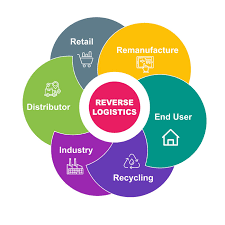
In the dynamic world of pharmaceuticals, supply chain management plays a pivotal role in ensuring the efficient and timely delivery of life-saving drugs and medical supplies. A critical aspect of this management is the implementation of reverse logistics, which focuses on the efficient handling of product returns, recalls, and the disposal of expired or damaged pharmaceuticals. In this article, we will explore the importance of pharmaceutical reverse logistics in supply chain management and how it contributes to the overall success of the industry.
Importance of Pharmaceutical Reverse Logistics
1. Operational Optimization:
Pharmaceutical reverse logistics helps optimize operations by streamlining the flow of products back into the supply chain. It involves processes such as product returns, restocking, and redistribution, which prevent inventory build-up and reduce the risk of stock outs. By effectively managing reverse logistics, pharmaceutical companies can improve inventory accuracy, reduce carrying costs, and enhance overall operational efficiency. When pharmaceutical products are returned, they may still be usable. Reverse logistics allows companies to salvage these items, inspect them, and return them to inventory if appropriate.
2. Waste Reduction:
The pharmaceutical industry faces unique challenges in managing product returns and waste disposal. Reverse logistics provides a systematic approach to handle and dispose of expired or damaged pharmaceuticals while adhering to strict regulatory guidelines. Proper disposal methods not only minimize environmental impact but also safeguard public health by preventing the misuse or contamination of expired medications. By reducing waste through reverse logistics, pharmaceutical companies can contribute to a more sustainable and responsible industry. Efficient returns management ensures that defective or expired items are properly handled, minimizing waste and ensuring compliance with safety regulations
3. Regulatory Compliance:
Pharmaceutical reverse logistics plays a crucial role in ensuring compliance with regulatory requirements. The industry is subject to stringent regulations, including the safe disposal of pharmaceutical products and adherence to recall procedures. Reverse logistics helps track and trace the movement of products, ensuring proper documentation and reporting. By maintaining regulatory compliance, pharmaceutical companies can avoid penalties, reputational damage, and legal issues.
4. Customer Satisfaction:
Effective reverse logistics positively impacts customer satisfaction. By efficiently managing product returns and exchanges, pharmaceutical companies can enhance customer experience and build trust. Prompt and hassle-free return processes, along with clear communication, contribute to customer loyalty and a positive brand image. Reverse logistics enables pharmaceutical companies to address customer concerns promptly, leading to increased customer satisfaction and retention.
5. Cost Savings:
Implementing pharmaceutical reverse logistics can result in significant cost savings for companies. By effectively managing returns and optimizing inventory levels, companies can reduce unnecessary expenses associated with excess inventory, transportation, and storage. Additionally, improved operational efficiency and waste reduction contribute to overall cost savings. These cost savings can be reinvested in research and development, further innovation, and improving patient care.
Conclusion:
The importance of pharmaceutical reverse logistics in supply chain management cannot be overstated. It optimizes operations, reduces waste, ensures regulatory compliance, enhances customer satisfaction, and provides cost savings. By effectively managing product returns, recalls, and the disposal of expired or damaged pharmaceuticals, the industry can maintain a seamless supply chain and contribute to the well-being of patients worldwide. Embracing the principles of reverse logistics is essential for pharmaceutical companies to thrive in a competitive and rapidly evolving industry.
Key takeaways – Pharmaceutical Reverse Logistics
Here are the key takeaways regarding the importance of pharmaceutical reverse logistics in supply chain management:
1. Pharmaceutical reverse logistics is essential for managing product recalls, ensuring compliance with regulations, and protecting public health.
2. It helps control costs and recover value from returned products through efficient handling, refurbishment, or resale.
3. Reverse logistics plays a crucial role in maintaining customer satisfaction and loyalty by addressing returns, complaints, and product exchanges.
4. It promotes sustainability by enabling proper disposal, recycling, and repurposing of pharmaceutical products, minimizing waste and environmental impact.
5. Reverse logistics provides valuable data and insights for optimizing supply chain operations, improving inventory management, and enhancing supply chain visibility.
By implementing effective reverse logistics practices, pharmaceutical companies can mitigate risks, reduce financial losses, enhance customer experiences, meet regulatory requirements, and achieve operational excellence in their supply chains.
Hope this information was helpful. you can check out our previous blogs by clicking here

